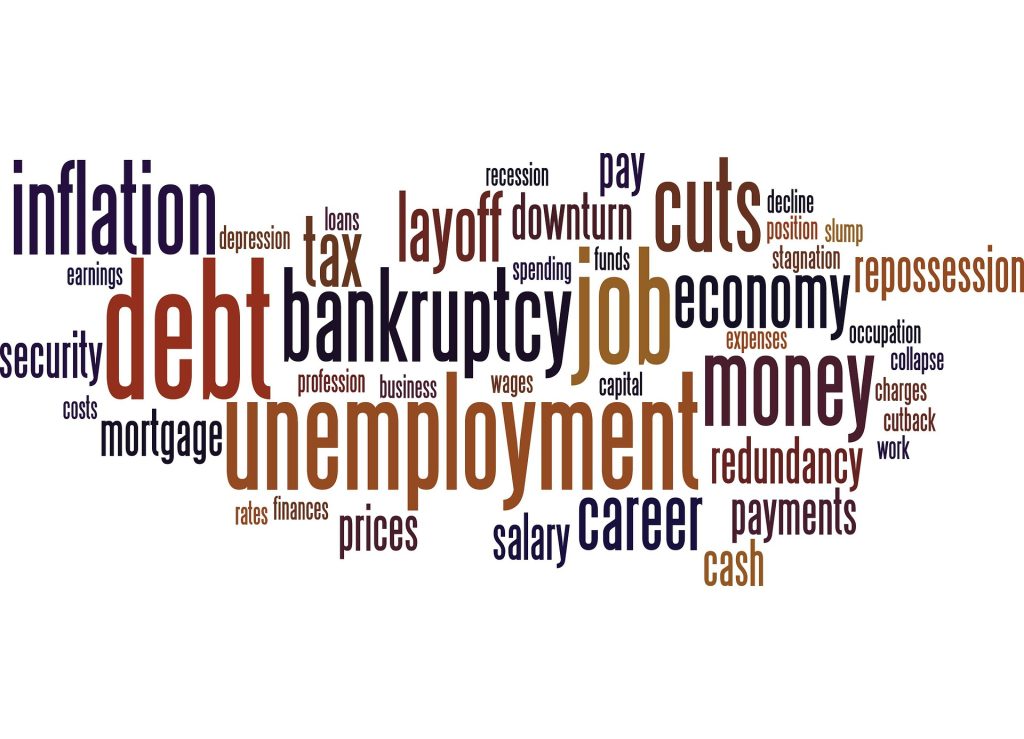What is Recession?
These days almost every Financial News or Media talks about Recession. It has become one of the most common buzzword to be discussed these days. But what exactly is the Recession and what are the common fears associated with Recessions? The word “recession” often brings a sense of unease and anxiety. Recession fears can have a significant impact on economies, financial markets, and the lives of individuals. These concerns are often amplified by global events and economic indicators, leaving many people wondering about the possibility of an impending economic downturn. In this article, I will delve into the topic of recession fears, examine some of the factors contributing to these apprehensions and the potential implications of recession fears to various stakeholders and most importantly to the common people.
In economic terms, a recession is simply defined as a significant decline in economic activity, typically characterized by a contraction in GDP (Gross Domestic Product) for two consecutive quarters. It is a period marked by reduced business activity, declining consumer spending, and often rising unemployment rates.
Factors Contributing to Recession Fears
- Economic Indicators: Several key economic indicators can trigger concerns about an impending recession. These include a decline in GDP growth, slowing industrial production, stagnant wages, decreasing consumer spending, and a drop in business investment. When these indicators show sustained negative trends, they raise red flags and heighten fears of an economic downturn.
- Geopolitical Uncertainty: Geopolitical events such as trade wars, political instability, and global conflicts can have a profound impact on the global economy. Heightened geopolitical tensions often lead to market volatility and reduced business confidence, increasing the likelihood of a recession. Factors like Brexit, ongoing trade disputes, or geopolitical unrest can fuel recession fears.
- Monetary Policy and Interest Rates: Central banks play a crucial role in managing economic stability through their monetary policy. When central banks raise interest rates to control inflation or reduce excessive borrowing, it can slow down economic growth. Tightening monetary policy can make borrowing more expensive for businesses and consumers, leading to decreased investment and spending, and potentially triggering a recession.
- Market Volatility and Investor Sentiment: Financial markets are sensitive to economic conditions and can amplify recession fears. Increased market volatility, stock market corrections, and sudden declines in asset prices can erode investor confidence. Negative investor sentiment can trigger a cycle of selling and lead to a contraction in economic activity, reinforcing the concerns about an economic downturn.
Implications of Recession Fears
- Job Insecurity: During a recession, businesses often cut costs, downsize, or freeze hiring, leading to increased job insecurity. Workers may face layoffs, reduced working hours, or stagnant wages, impacting their financial stability and overall well-being.
- Business Uncertainty: Recession fears can result in decreased business investments and expansion plans. Companies may postpone capital expenditures, delay new projects, or reduce their workforce, which can hinder economic growth and innovation.
- Consumer Behavior: When people fear an economic downturn, they tend to cut back on spending and focus on saving. Reduced consumer spending can negatively impact businesses across various sectors, leading to lower revenues and potentially contributing to a recession.
- Government Intervention: Governments often step in during a recession to implement fiscal stimulus measures to stimulate economic growth. These measures may include tax cuts, increased government spending, or monetary policy adjustments. However, excessive government intervention can lead to budget deficits and long-term economic challenges.
Navigating the Uncertainty
While recession fears can be unsettling, it is important to remember that economies are cyclical, and periods of growth are often followed by periods of contraction. It is equally important to recognize that not all fears materialize into recessions. Economic trends are influenced by a complex interplay of various factors, and accurate predictions are notoriously difficult.
For individuals, it is wise to focus on personal financial preparedness, such as maintaining an emergency fund, diversifying investments, control their overall expenses and focus on positive sentiments. Social support by the community and economic awareness also play a key role in keeping the recession fears less damaging to individuals.





